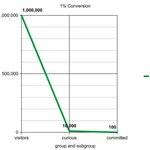
Perceptions of racism may cause loss of sleep and perhaps loss of sleep may also impact perceptions of racism.
A new study has found that
self-reported sleep disturbance correlated to perceived racism, which was increased by 61 percent after adjusting for socioeconomic factors and symptoms of depression. A similar relationship between perceived racism and daytime fatigue was no longer significant after additional adjustment for depressive symptoms.
The study involved an analysis of data from the 2006 Behavioral Risk Factor Surveillance System, which is administered by the Centers for Disease…
